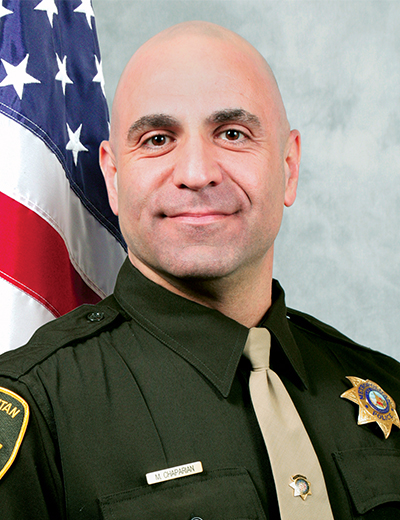
Executive Director
The dispatcher’s voice crackles over the radio and places you and another marked unit on a “shots fired” call, and suddenly your heart starts beating at double the pace as you grab your microphone, acknowledge the call and flip a U-turn to head toward the call. You and your partner arrive, and you exit your car to take up a good spot that provides you cover and concealment. Your partner is stacked behind you as you assess the situation and determine if it’s better for you to move closer to where you believe the suspect is hiding. You turn toward your partner and say, “Cover me.” With those two simple words, you have turned the safety of yourself and the security of your family over to a fellow cop, and you don’t think twice about it. You know that he will do everything in his power to make sure you are safe and taken care of.
The unit supervisor has returned from an “action” meeting and his message is crystal clear: “We need more arrests made, more search warrants served and more narcotics seized.” Another detective has developed a good confidential informant who has proved to be reliable and helped develop a case for trafficking. An additional squad mate has returned to the office with a diagram of the target house and is already banging away at his computer to draft a search warrant. You don’t bat an eye at the warrant or the information the C.I. has provided. As you prepare to drive to the residence to execute the warrant, you never question the integrity of the case, the warrant or your fellow detectives’ work.
As you’re working a robbery case, you develop a lead that brings you in contact with a potential suspect. After you interview him, you have clear probable cause to arrest him for robbery with a weapon. Your partner takes him to the car as you quickly follow up with a phone call. You join your partner at the car and ask him if he has searched the suspect. He says, “Yes, nothing but a wallet and some keys.” You don’t think twice about whether or not his search was thorough or that he may have missed a gun prior to both of you driving the suspect to be booked.
The Association concludes contract negotiations, signs a “memo of understanding” or takes a stance on an issue that involves a Metro management decision. A seasoned officer who is assigned to the Association picks up the other end of the phone that you have dialed and explains to you the who, what, where and why of a situation you are involved in. Do you think twice about what he is saying? Do you doubt that he has your best interest at heart? Do you question his loyalty?
Most of us who are reading this are police or corrections officers. Our very existence depends on faith, trust and loyalty to and from our fellow officers. This does not stop at hostile calls, serving search warrants or dealing with potentially armed suspects. Each one of us assigned to the Association is either a police or corrections officer just like you are. We all have the very same interests and concerns for a safe, productive, non-hostile, lucrative career as you do. We are not “untouchable” in our assignments, nor have any of us ever forgotten where our loyalty lies.
The vast majority of the members I speak with on a daily basis understand this and know this to be true. From time to time however, I run into some members who may question our loyalty, our desire to serve fellow officers and our will to fight the fights we know are right and even doubt our wisdom and experience when we suggest to negotiate instead of fight a case we are clearly going to lose. I have always found it ironic that the Department will trust its officers to guard the President of the United States while carrying multiple firearms and never bat an eye, and yet will make policy that those same officers shall not enter the station key room unsupervised. If that sounds as ridiculous to you as it does to me, think about how ridiculous it sounds that you would certainly trust me with your life while in the field and yet may doubt my ability as it relates to our contract, a Metro management decision or the ability to know what politician to endorse because they support what we fight for each day.
If you find yourself to be one of those people, ask yourself why. If you observe others acting in such a manner, ask them why. In the meantime, get involved with your Association, get to know your area representatives, attend general membership meetings and participate in Association functions. If America trusts me to stand next to the president while I carry a firearm, won’t you trust me to negotiate a contract, fight for you at IA and advise you as issues arise with Metro management?
I offer my sincere thanks to all who continually support the Association and its commitment to excellence to its members. Only together can we build a strong future for ourselves.

